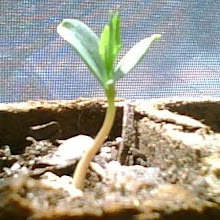My inspiration, in case you were wondering, is Sustainable Dave, who made a new year's resolution in 2008 to reduce his material waste, and keep what he couldn't reduce. The average American is estimated to produce something like 4.5 pounds of trash a day. I don't even want to multiply that by 365. Anyway, he's one of my eco-heroes, and if he could do it, so can I.
I've fought this battle on a few different fronts so far, but lately I've been in a skirmish with household cleaners. First of all, if you want to clean anything these days, you need a special kind of cleaner for everything -- window cleaner, polish for the wood table, stain remover for the carpet and then for the clothes, different odor treatments for the bathroom, living room, and kitchen. You end up having something like 15 or 20 spray bottles under the kitchen sink, and most of what's inside them is toxic.
You got poison under your sink, and you already knew it, too! But the thing they don't want you to know is that there are non-toxic and insanely cheap ways of making your own household cleaners. I found out through rabid internet research, and an obsession with baking soda.
The interest in baking soda began with the notion that it can be used to prevent a certain kind of infection that I'm susceptible to (but more on that later).
Then I started washing my hair with it.
Then I used it on a drain clog.
I think I officially became an eco-freak once I started washing my hair with it. But I like it a lot better than the shampoo. The thing that weirds me out about shampoo is that it dries my hair out so much that I need a conditioner for it to look healthy. Now... if I buy something to clean my hair, which requires another product to fix the damage of the first product, that just makes me a little suspicious. Why can't the darn thing just clean my hair right the first time? Jeez.
With the baking soda, I just make a little paste and scrub it in, let it set while I wash the rest of me, and then rinse it out. At first I was worried that it was leaving grease behind, but I just upped the dose the next time and it works fine.
I've heard other shampoo substitutes, from corn flour (brushed into and out of dry hair) to brushing with a cheesecloth to... plain water. Yep, plain water! I think it takes some time for your hair to adjust, if you go that route. Oh, and let's not forget the vinegar conditioning rinse, which is evidently fabulous for your hair and scalp. (It reportedly stops smelling like vinegar once it dries... I may try that one myself and tell you what happens.)
The baking soda drain thing... sort of worked. We have a slow drain in the shower. I have read a whole medley of instructions on how to do this, but what I ended up doing was 2 tablespoons of baking soda, followed by 3/4 cup of white vinegar... the first time, I followed immediately with boiling water, the second time, I let it sit for 5-10 minutes before dousing with the boiling water. The drain moves slightly faster now... I'm thinking it's all in the proportions. The part that loosens the clog is the fizzy reaction between the acidic vinegar and the alkaline baking soda. I've read a few sets of instructions with equal parts baking soda and vinegar, so I'll try that, and maybe 30 minutes of sitting time.
Anyway, there are loads of other things you can do with baking soda and vinegar. Check out this list at tree hugging family. Or this list at ecocycle. And if you're really hardcore, and want to go beyond washing your hair... check out making your own toothpaste at eHow.com. Arm & Hammer also has some tips, including washing your skin with baking soda (the grainy texture makes it a natural exfoliant).

No comments:
Post a Comment